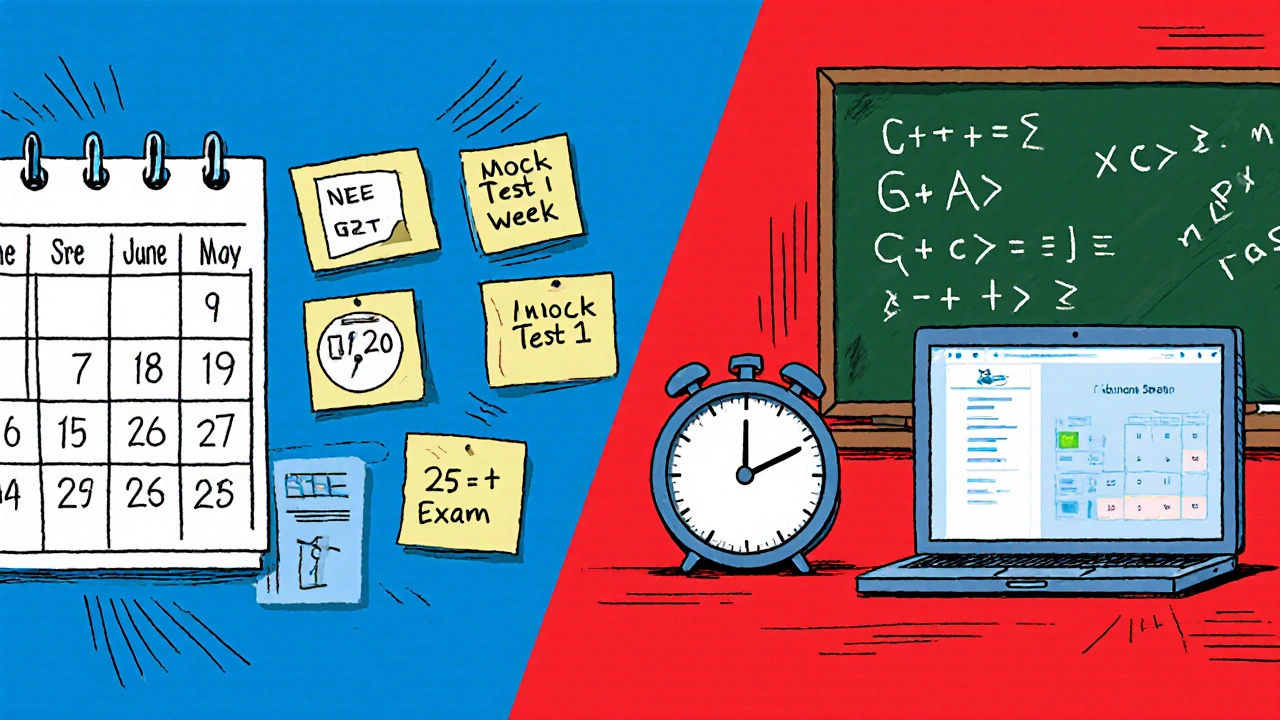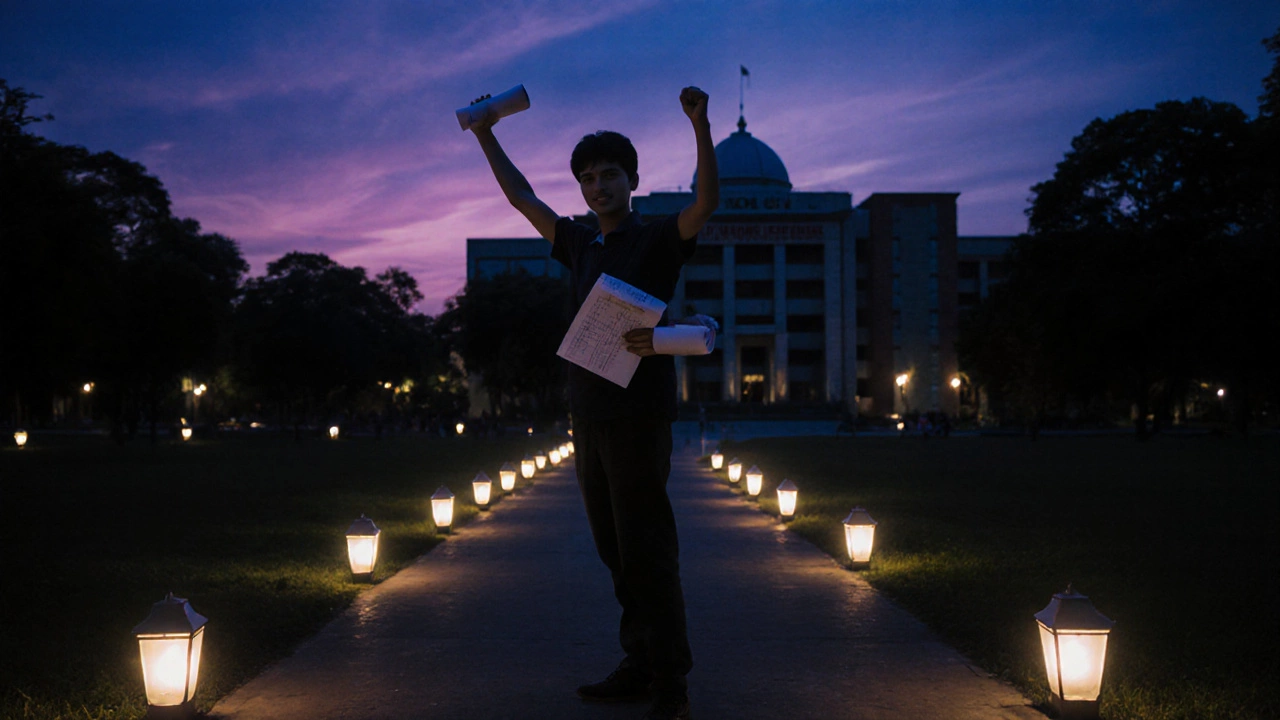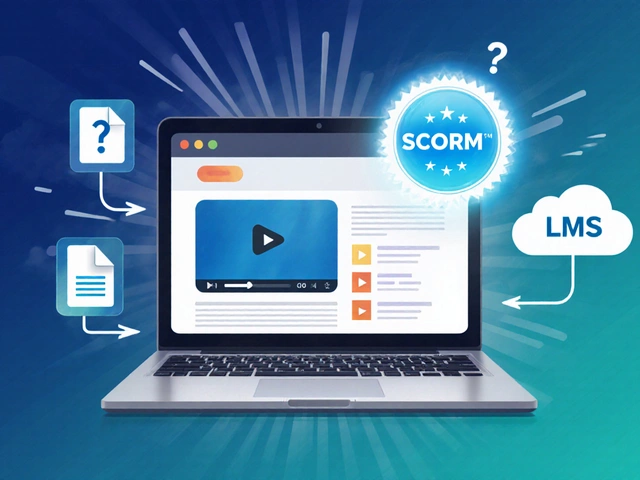
JEE Two-Year Plan Assessment Tool
How Ready Are You for a Two-Year JEE Plan?
Answer these questions to determine if a two-year preparation timeline is realistic for you.
Every year, thousands of students wonder if a two‑year window can really get them through the grueling IIT JEE preparation marathon. The answer isn’t a simple yes or no - it hinges on your starting point, resources, and how you structure every month. Below we break down the key variables, map out a realistic two‑year roadmap, and give you a checklist to keep the plan on track.
Quick Takeaway
- Two years can be enough if you start early (around 11th grade) and follow a disciplined, progressive schedule.
- Success depends on a solid foundation in CBSE curriculum, regular mock tests, and targeted coaching.
- Mixing self‑study with quality coaching institutes boosts conceptual clarity.
- Consistency beats intensity - aim for 15‑20 hours/week in the first year, ramp up to 25‑30 in the second.
- Track progress with previous year papers and timed mock exams.
Understanding the JEE Timeline
Before you decide on a two‑year plan, it helps to know what the exam actually covers.
JEE Main is the first gateway, testing physics, chemistry, and mathematics at a level aligned with class 11‑12 concepts. Scoring well here qualifies you for JEE Advanced, which dives deeper with tougher problems and a stricter time constraint.
Both stages demand a firm grasp of fundamentals, problem‑solving speed, and test‑day stamina. Skipping any of these pillars makes the two‑year target risky.
Key Factors That Determine Whether Two Years Is Sufficient
- Baseline Academic Strength: Students who already score 80%+ in CBSE board exams have a head start. Those struggling to cross 60% may need extra remediation.
- Quality of Coaching: Elite institutes (like FIITJEE, Allen, Resonance) provide structured study material, weekly tests, and doubt‑clearing sessions. If you opt for self‑study, you’ll need curated resources and disciplined revision cycles.
- Study Hours per Week: Consistency matters more than occasional marathon sessions. A realistic weekly commitment is 15‑20 hrs in year 1, rising to 25‑30 hrs in year 2.
- Regular Mock Tests: Taking full‑length mocks every 2‑3 weeks builds endurance and highlights weak spots. Use the JEE Main mock test series from reputable platforms.
- Feedback Loop: Analyze mock results, update your study plan, and revisit concepts promptly. Without this loop, gaps widen.
- Personal Discipline: Managing school, extracurriculars, and home responsibilities while staying focused is the biggest challenge.

Designing a Two‑Year Study Blueprint
Here’s a month‑by‑month breakdown that works for most students starting in 11th grade.
- Months 1‑3 (June‑August, 11th grade): Build a strong foundation. Cover NCERT chapters thoroughly, solve end‑of‑chapter questions, and start a weekly problem‑set from a standard JEE book (e.g., H.C. Verma for Physics).
- Months 4‑6 (Sept‑Nov): Introduce topic‑wise advanced problems. Attend weekend classes at a coaching institute, focus on tricky concepts like vectors and organic chemistry.
- Months 7‑9 (Dec‑Feb): Start timed practice. Use previous year papers for JEE Main, allocate one paper per week, and review solutions in depth.
- Months 10‑12 (Mar‑May): Take the first official JEE Main mock. Identify weak sections, revise accordingly, and increase weekly study hours to 20 hrs.
- Year 2, Months 1‑3 (June‑August, 12th grade): Shift focus to JEE Advanced level problems. Emphasize integration of concepts across subjects.
- Months 4‑6 (Sept‑Nov): Full‑length mock exams every two weeks. Simulate exam environment: no breaks, real time limits.
- Months 7‑9 (Dec‑Feb): Intensive revision. Create concise formula sheets, redo all missed questions, and practice speed drills.
- Months 10‑12 (Mar‑May): Final push. Attend doubt‑clearing sessions at your coaching center, keep stress low, and maintain a healthy sleep schedule.
Adjust the timeline based on personal progress. If you consistently miss targets during mocks, consider adding an extra 5‑10 hrs of focused study each week.
Comparison: 2‑Year vs 1‑Year Preparation
| Aspect | 2‑Year Plan | 1‑Year Plan |
|---|---|---|
| Study Hours/Week | 15‑30 hrs (gradual increase) | 30‑40 hrs (steady high) |
| Depth of Conceptual Coverage | Complete NCERT + multiple reference books | Selective NCERT + shortcut guides |
| Mock Test Frequency | Bi‑weekly in year 1, weekly in year 2 | Weekly throughout the year |
| Risk of Burnout | Lower - built‑in rest periods | Higher - intense workload all year |
| Recommended For | Students with solid 11th‑grade foundation | Students who started late or need a rapid push |
Common Pitfalls and How to Avoid Them
- Skipping NCERT: Many aspirants jump straight to advanced books, but NCERT provides the core concepts needed for JEE Main.
- Over‑relying on One Resource: Diversify your material - mix textbooks, video lectures, and test series.
- Neglecting Mock Test Analysis: Simply taking a mock isn’t enough. Spend equal time reviewing each mistake.
- Ignoring Health: Sleep deprivation and poor diet reduce concentration. Schedule short breaks and exercise.
- Procrastinating on Weak Areas: Tackle difficult topics early; the longer you delay, the harder they become.

Checklist: Is Your Two‑Year Plan Viable?
- Started 11th grade with at least 70% in CBSE board exams?
- Enrolled in a reputable coaching institute or have a curated self‑study schedule?
- Allocated 15‑20 hrs/week for the first six months?
- Completed at least one full JEE Main mock every month?
- Maintained a weekly review log of errors and action items?
- Scheduled regular health breaks - sleep 7‑8 hrs, exercise 3‑4 times a week?
If you tick most of these boxes, a two‑year timeline is realistic. If several items are missing, consider extending the plan or intensifying your effort.
Final Thoughts
Two years can absolutely be enough to crack the IIT JEE, but only if you treat the preparation like a marathon, not a sprint. Start early, build a sturdy foundation, blend coaching with self‑study, and keep the feedback loop tight. Remember, consistency beats occasional cramming every time.
Frequently Asked Questions
Can I start a two‑year JEE plan in 12th grade?
Starting in 12th grade is possible, but the plan becomes more compressed. You’ll need to allocate 30‑35 hrs/week and focus heavily on mock tests. Many students still succeed, though the margin for error shrinks.
Is self‑study alone enough for a two‑year timeline?
Self‑study can work if you have disciplined peers, access to quality video lectures, and a strict mock‑test schedule. However, most top scorers supplement with at least monthly doubt‑clearing sessions from a coaching centre.
How many mock tests should I attempt before the real exam?
Aim for at least 12 full‑length JEE Main mocks and 8 JEE Advanced mocks. Space them out to simulate exam day conditions, and review each one thoroughly.
What role does the CBSE board play in JEE preparation?
CBSE curriculum aligns closely with JEE Main topics. Scoring well in CBSE ensures you’ve covered the essential concepts. Many coaches use CBSE chapters as the baseline for JEE study.
Should I focus more on physics, chemistry, or mathematics?
Balance is key. Identify your weakest subject early and allocate extra time to it. Typically, students spend 30% of their weekly hours on each subject, adjusting as mock results dictate.







